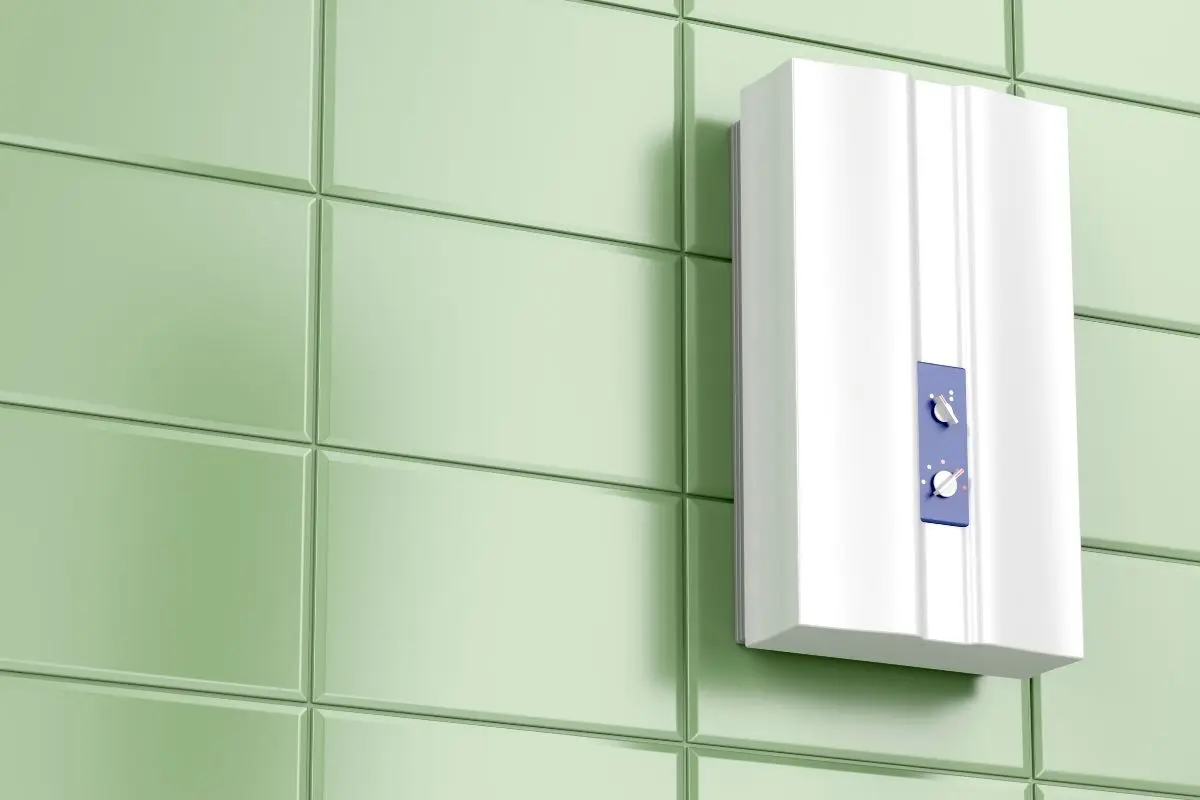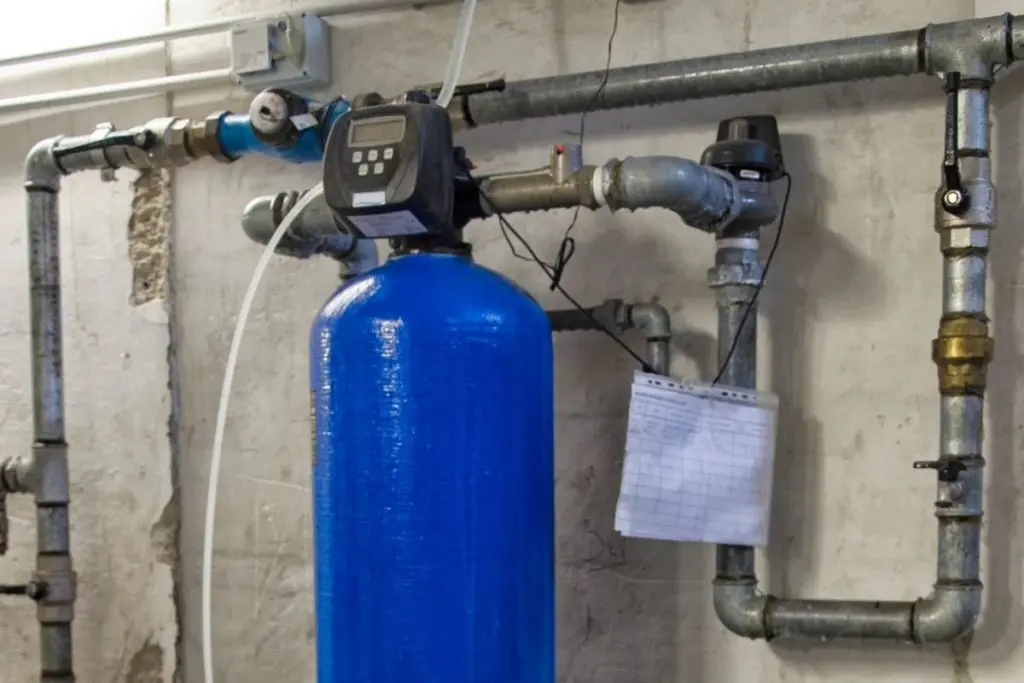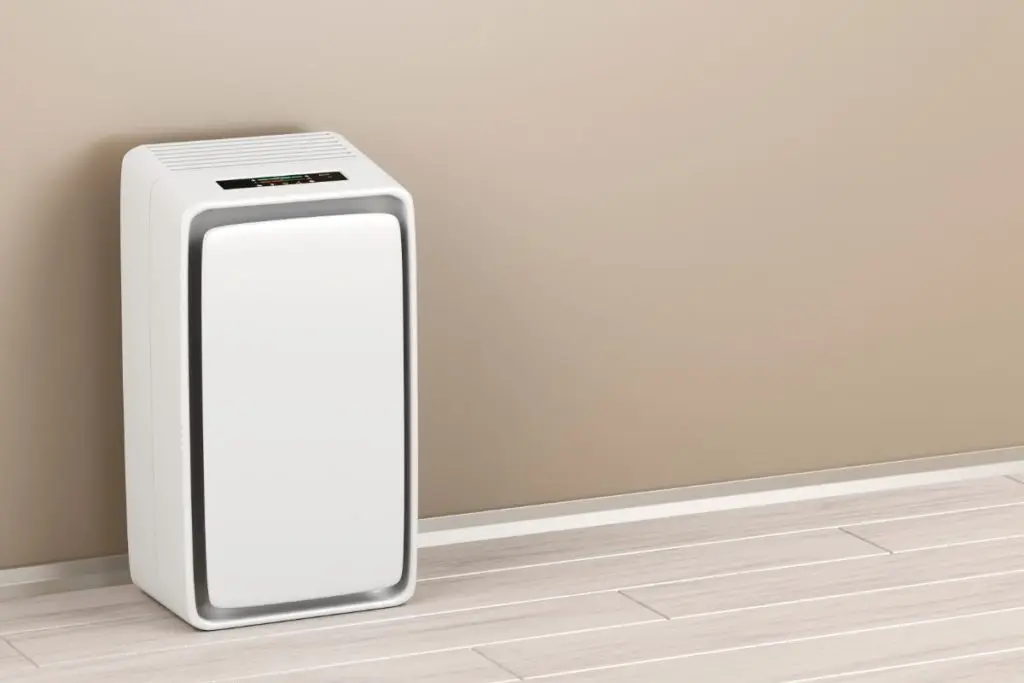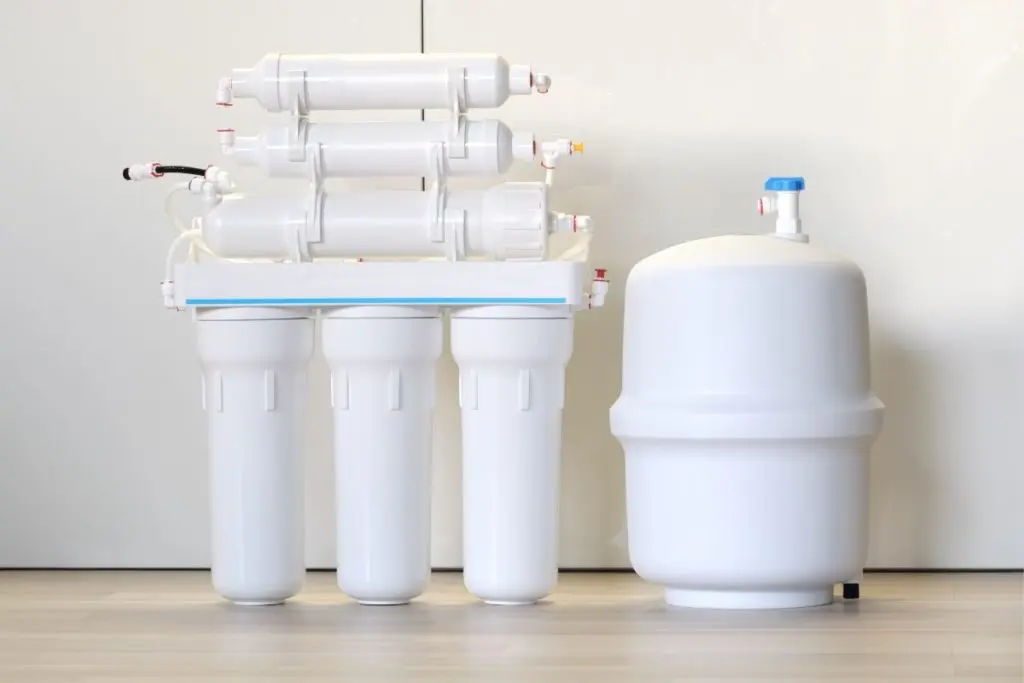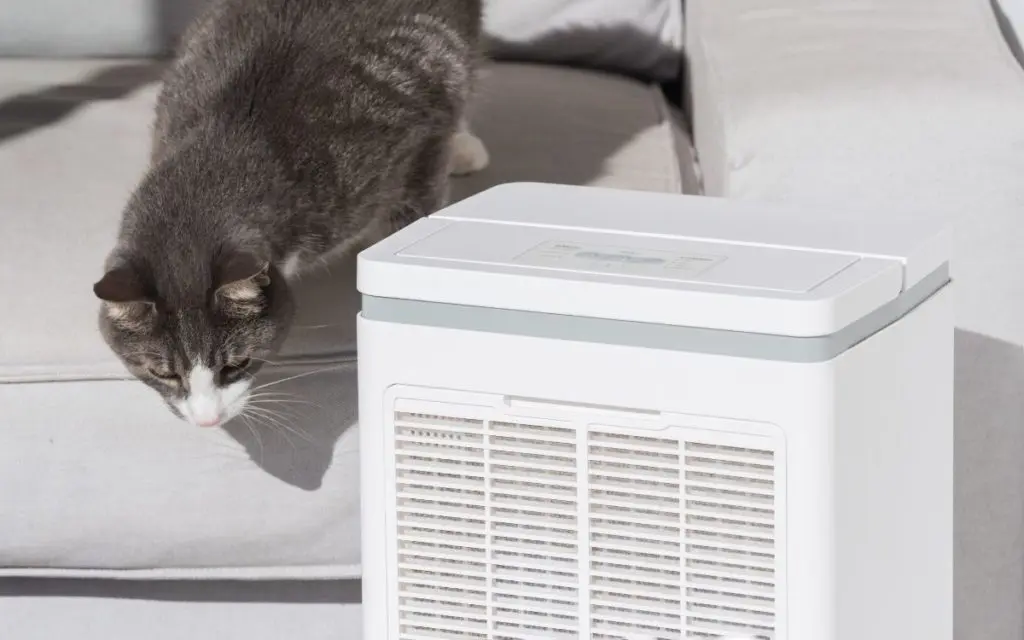Having plenty of hot water at the ready is both a comfort and a necessity. Where would we be without hot H2O for our dishes, showers, laundry, and more? With the increasing popularity of both gas vs. electric tankless water heaters, it’s possible to access an unending supply of hot water — on demand. Even better, modern tankless water heaters are less expensive to operate, require less maintenance, and are dramatically more efficient than the big old tank heaters of yore.
The bottom line is both electric and gas tankless heaters are highly efficient and either will save you energy, time, and money.
In this article, we’ll take a closer look at the specific differences between gas vs. electric tankless water heaters, and discover some tankless water heater pros and cons. Then we’ll compare these highly-efficient water heating systems across a few categories.
| Gas Tankless Water Heater | Electric Tankless Water Heater | |
| Efficiency | ✓ | ✓ (tie, depending on type of use) |
| Cost | ✓ | |
| Installation | ✓ | |
| Maintenance | ✓ |
Tankless Water Heaters Gas vs. Electric: The Basics
Before we can determine which heater comes out ahead, we’ll need to learn a little more about tankless water heaters in general.
What is a tankless water heater?
A tankless water heater is also known as a “point of use” or an “on demand” water heater. Unlike a traditional water heater, which stores water in a tank between uses, a tankless water heater only heats water on demand. Each time you run your kitchen faucet, or turn on your shower, a heating element draws water inside the unit and heats it just for that use.
With their large, bulky tanks, traditional water heaters accumulate a lot of “standby” energy loss from constantly keeping a large amount of hot water at the ready. Tankless water heaters, on the other hand, are much more efficient. They are also considerably smaller and can squeeze into more spaces.
Depending on its size and flow rate, the number of gallons of water a tankless heater can pump per minute will vary, but get this — as long as the flow rate of your water matches the rate of your water heater, you’ll never run out of hot water. Anyone who’s ever had a hot bath turn lukewarm halfway through, or scrambled to rinse the conditioner out of their hair before losing the last bit of hot water can tell you what a selling point that is!
The Many Advantages of Tankless Water Heaters
First, let’s get the main disadvantage of tankless water heaters out of the way. It’s true; you’re going to spend a little more upfront with a tankless heating system.
But consider the tankless water heater’s greatest asset: its major efficiency. Regardless of whether you choose gas or electric, a tankless heater will be around 35% more efficient than a traditional tanker. Higher efficiency not only means a more environmentally sustainable heater, but it also translates into significant cost savings over time.
Another tic in the column of tankless water heaters is their longevity. A traditional water heater generally lasts about 10 to 13 years on average. In comparison, tankless water heaters can last 20 years or more — almost twice as long! Add into the mix that tankless water heaters are safer and less likely to leak, and you can pat yourself on the back for making such a wise choice.
Gas vs. Electric Tankless Water Heaters: Pros & Cons
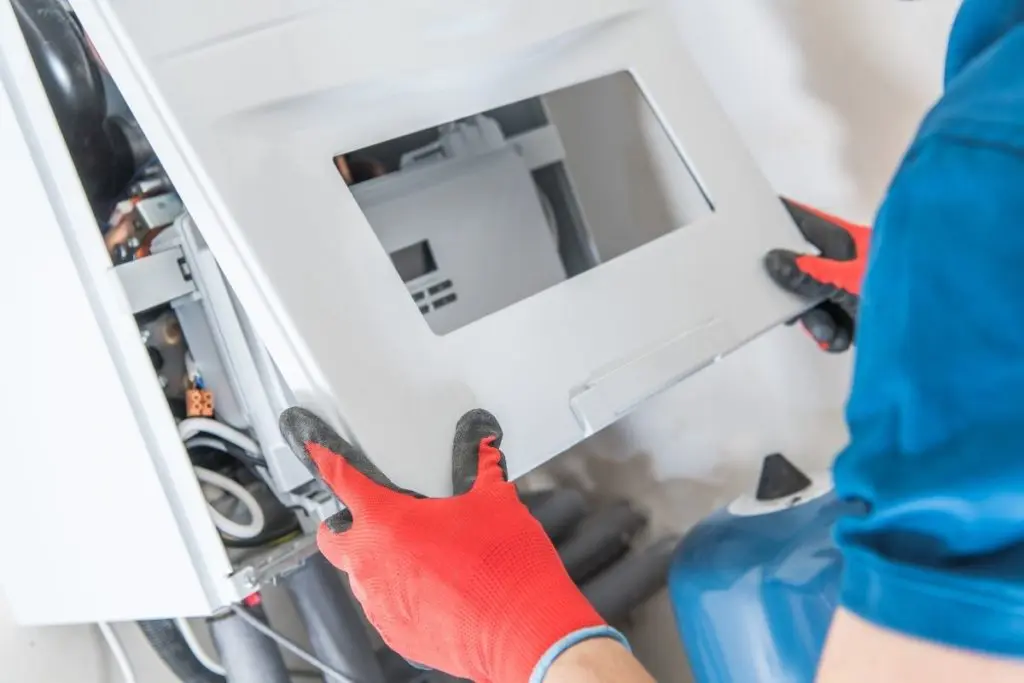
Now that we’ve taken a look at why tankless water heaters are so great, let’s get to a more detailed comparison of the two basic types of tankless water heaters: gas vs. electric.
Gas Tankless Water Heaters
PROS
- Higher capacity
- Lower overall operating cost, but dependent on fluctuating fuel costs
- Produce a larger temperature rise per GPM than electric models (see below for more info)
CONS
- Risk of gas leaks
- More prone to mineral scale buildup
- Higher initial and installation costs than electric
- More expensive and/or difficult to maintain and repair
Electric Tankless Water Heaters
PROS
- Smaller size
- No pilot light
- No gas-related hazards
- Less expensive upfront
- Much easier installation
- Higher thermal efficiency
- Easier maintenance and repair
- No need for gas hookups or special venting
- Smaller carbon footprint (if using clean power source)
CONS
- Lower flow rates
- No hot water in a power outage
- Not as efficient in larger or colder homes
- Operating costs can be higher, depending on rates and region
Top 3 Things to Know About Tankless Water Heaters
Both gas and electric tankless heaters have grown in popularity in recent years due to their consistent advantages over traditional water heaters. Either is a sound choice, but there are a few important things to note about tankless water heaters, regardless of how they’re powered.
1
Know your hot water demand. You’ll want to “size” your tankless water heater, which means calculating how much hot water you need to use at one time and determining your temperature rise. The latter is the number of degrees it takes your heater to heat incoming water, whatever its temperature may be. There are many online how-to’s that can help you figure out the ideal size for your tankless water heater.
2
Determine flow rates and GPM. A heater’s gallons per minute flow rate, or GPM, determines how much water it can pump out in a minute. Why is this important? If the flow rate of your water matches the rate of your water heater, you’ll never run out of hot water. However, if your GPM is too low for the flow rate of, say, your bathtub, your water may not be able to heat up as much as you’d like, as quickly as you’d like. Most tankless water heater manufacturers provide charts to illustrate the GPM of a unit, to show whether it will meet your needs.
3
Consider your climate. Choosing a tankless water heater will be informed by where you live. Because tankless heaters only heat as needed, the incoming water is much more important to consider than with a traditional water heater. The temperature of the water flowing into your heating unit will depend on the temperature of groundwater, climate, and the season. The colder the incoming water, the harder your heater will have to work. Consult an average supply water temperature map to determine which zone you live in. Then use the lower end of the temperature range to make sure you’ll always have enough hot water, even during the coldest time of the year.
Electric vs. Gas Tankless Water Heaters: Efficiency, Cost, Installation, and Maintenance
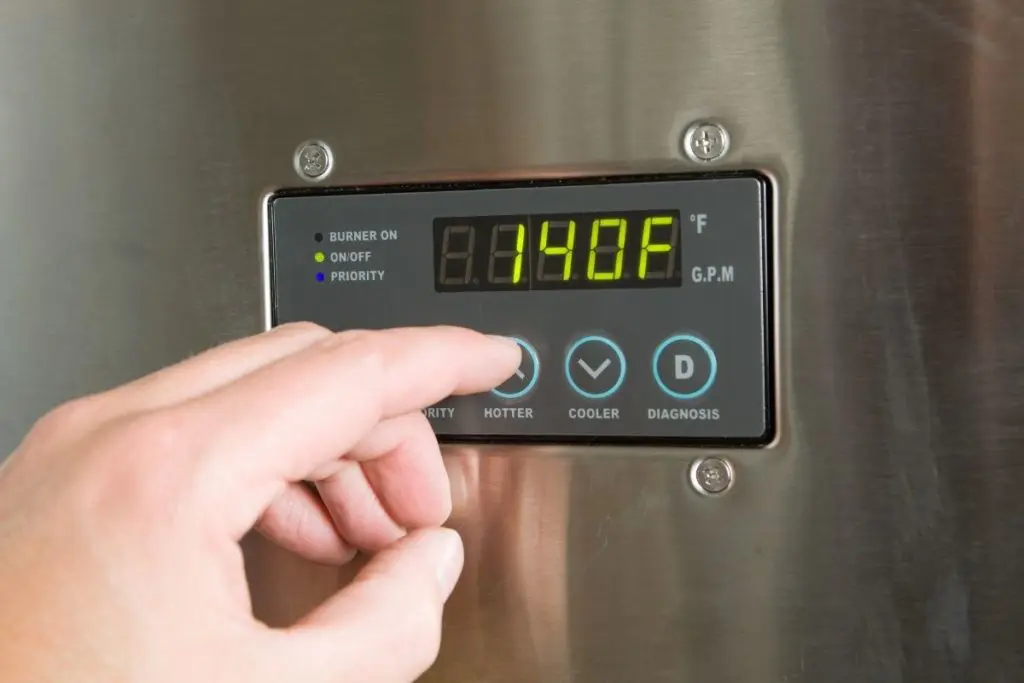
Now it’s time to compare gas vs. electric across categories of efficiency, price, ease of installation, and maintenance requirements.
1
Efficiency
Electric and gas tankless heaters blow traditional tank heaters out of the water when it comes to efficiency. Both are more economical and use energy very frugally. However, when you compare the details, their levels of efficiency are slightly different, in slightly contradictory ways.
For example, electric tankless heaters are more thermally efficient (about 98% as compared to gas heaters’ 80-85%). Still, in most cases, electric heaters will cost more to power. Electric heating units are also more environmentally sustainable than gas heaters if you’re looking at fossil fuel usage. However, that’s only if you have access to “cleaner” power sources like wind, solar panels, etc.
Efficiency also depends on where you live and how cold your water is. If you live in a cold climate, your water heater will have to work harder and draw more power. If you have many people living in your home, or a higher demand for hot water, you’ll likely need a gas-powered heater with a higher GPM rate. This is especially something to consider if you live in a colder region, which will mean your heater will need to raise the temperature further, faster. A gas tankless water heater will generally perform better in these conditions.
There’s also a unit’s EF to consider. A water heater’s EF, or energy factor, is a measurement that reflects how much hot water a heater can produce each day, compared to the amount of fuel it uses. A high EF means that your water heater is very efficient. In contrast, a water heater with an inefficient low number EF is best avoided. Electric water heaters often have an edge when it comes to EF.
Finally, electric tankless water heaters tend to be smaller than gas systems, which means a more efficient use of space. Keeping either your gas or electric tankless water heater well-maintained will also positively increase its efficiency.
Verdict: Overall, electric tankless heaters are usually more efficient, but other factors like a cold climate or a large household could mean that a gas tankless water heater is the more efficient choice for you.
2
Cost
Let’s start with what is clear: it costs more upfront to buy a gas tankless water heater than an electric one. While a good electric water heater will set you back around $500-700, a gas heater will cost more like $1,000 and up. The initial price tag of a gas tankless heater will depend on whether you buy a condensing or non-condensing tankless system. A condensing unit features a more contained design that doesn’t require venting, whereas a non-condensing system requires more venting, and therefore more expensive water heater installation.
Then there’s the question of fuel. The cost to operate a gas-powered tankless water heater will depend on the cost of natural gas where you live, or if you choose a (less common) propane tankless water heater, the cost of propane. At the moment, natural gas is likely to be cheaper than electricity, so it generally costs less to operate a gas-powered heater. This seems like a clear win until you consider that natural gas costs are projected to rise over the coming years, and electric power is more likely to remain stable.
Verdict: So which is the bigger money-saver? Our pick is electric tankless water heaters due to their much lower initial cost and long-term fuel cost estimates. Overall cost also is dependent on other factors such as installation and maintenance, which we’re about to examine in further detail.
3
Installation
First, let’s establish that installing a tankless water heater isn’t an easy job and usually requires professional assistance.
Gas-powered heaters, in particular, have specific ventilation needs, require more space, special hookups, and a higher degree of professional assistance. Electric tankless systems, on the other hand, are smaller, less complicated systems. They are easier to install, cost less, and can be installed in a wider variety of spaces because they’re smaller and require no special venting.
Part of the reason gas heaters are more difficult and expensive to install is that the existing gas lines and ducts in your home aren’t always compatible with a gas tankless heating system. That means you might be in for unexpected alterations or upgrades to get your water heater up and running.
Verdict: Electric tankless heaters’ ease of installation melts away the competition.
4
Maintenance
Unlike traditional water heaters, which tend to leak or give out eventually, tankless water heaters have a much longer life.
Both gas and electric tankless water heaters require maintenance. However, the main difference between the two is the frequency of servicing. Gas heaters should be inspected annually to ensure safe gas use and proper performance. Electric tankless heaters don’t require that level of attention.
Gas tankless water heaters also tend to accumulate higher levels of mineral scaling than electric models, and are likely to require more frequent flushing. That doesn’t mean you’re off the hook with an electric tankless water heater. It will still need regular flushing to maintain its efficiency, and its screens will also need regular cleaning.
One more factor to consider is whether your home’s water is hard or soft. If you have excess minerals in your water, that can build up some serious scale on your water heater in a far shorter amount of time.
Verdict: Electric tankless water heaters are easier to maintain. But remember— both gas and electric water heaters require regular flushing. Skip this regular maintenance, and you may risk shortening the heater’s service life.
Gas or Electric Tankless Hot Water Heater: Which is Better?
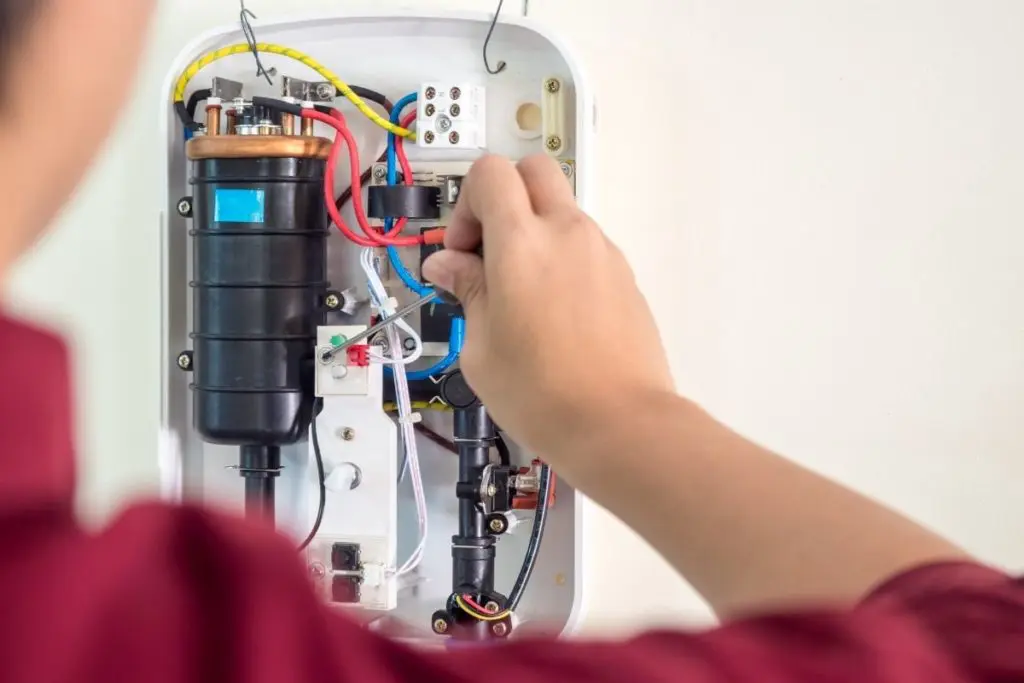
The real winner here is tankless water heaters — either electric or gas. Compared to traditional water heaters, they’re smaller, far more efficient, last longer, and are easier to maintain.
When it comes down to choosing between tankless water heaters, the differences are less dramatic but still important.
Electric tankless water heaters are cheaper upfront, safer, less fussy to maintain, and are easier to install. But gas tankless water heaters are an excellent choice for larger households and colder climates — and generally won’t leave you without hot water in a power outage.
Ultimately, it may come down to what type of power hookups you already have in your home. And regardless of whether you choose an electric or gas tankless water heater, you’ll be enjoying access to unlimited hot water whenever you need it.
Further Reading
